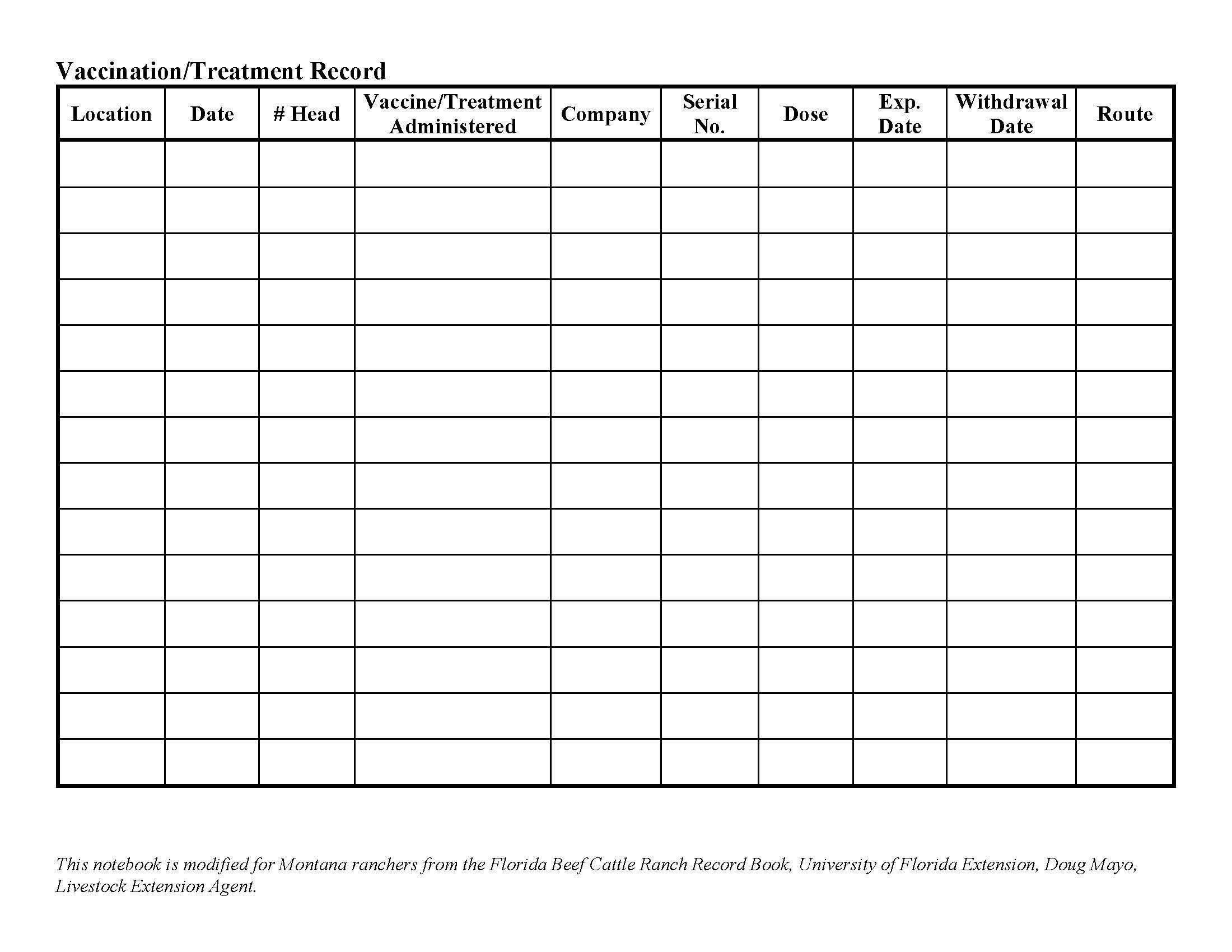In this post, we’ll be talking all things cattle. Specifically, we’ll be diving into vaccination records for your ranchers notebook. Ensuring your cattle are healthy is crucial to maintaining your ranch’s profitability and sustainability. Let’s start by taking a look at a sample vaccination record.
Vaccination Record Sample
 As you can see, this vaccination record has spaces for all the important information you’ll need to keep track of your herd’s vaccinations. The record includes spaces for the following:
As you can see, this vaccination record has spaces for all the important information you’ll need to keep track of your herd’s vaccinations. The record includes spaces for the following:
- Cattle ID
- Vaccine administered
- Lot number
- Expiration date
- Administration (Subcutaneous, Intramuscular, etc.)
- Location administered (Neck, Hip, etc.)
- Who administered the vaccine
- Date administered
Why Vaccinate?
Vaccinations are important for a few reasons. Firstly, they prevent the spread of diseases amongst your cattle. This will prevent illness and death within your herd. This will keep your operations running smoothly and save you the time and money it would take to replace sick or dead animals.
Vaccinations also help prevent disease from spreading beyond your herd. Many diseases are highly contagious, and without vaccinations, a single infected animal could spread disease to your neighbors’ herds and beyond.
Lastly, many countries and states require certain vaccinations for cattle. Failure to meet these requirements could result in fines or even quarantine of your herd.
When to Vaccinate?
The timing of vaccinations will depend on the type of vaccine and the age of the animal. In general, most vaccines are given twice a year, spring and fall. Calves typically receive vaccinations starting at 2-3 months old and continue to receive boosters until they are about a year old. Adult cattle will typically receive vaccinations annually or bi-annually.
It’s important to work with your veterinarian to determine a vaccination schedule that’s appropriate for your herd and the disease risks in your area.
Which Vaccines?
The specific vaccines needed will vary depending on several factors. These factors include geographic location, age of the animal, and the specific disease risks in your area. Your veterinarian can help you choose which vaccines to administer to your herd.
That being said, there are a few vaccines that are commonly recommended for most herds. These vaccines include:
- Tetanus
- Clostridial diseases
- Infectious bovine rhinotracheitis (IBR)
- Bovine viral diarrhea (BVD)
- Leptospirosis
- Vibriosis
Conclusions
Vaccinations are essential to maintaining a healthy herd and, in turn, a profitable and sustainable ranch. A detailed vaccination record is an essential tool for keeping track of your herd’s vaccination history. Talk with your veterinarian about which vaccines are necessary for your herd and how often they need to be administered.
Don’t skimp on vaccinations - the benefits of preventing disease transmission and minimizing herd losses far outweigh the cost of vaccinations.